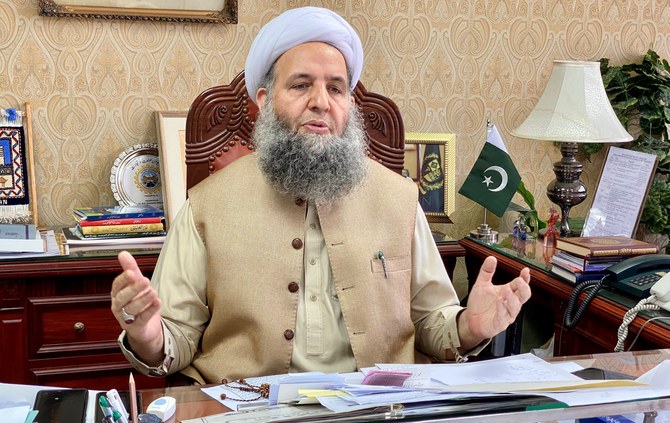ISLAMABAD: With sacrificial goats commanding million-rupee price tags this Eid Al-Adha, many in Pakistan’s capital are seeking solace not in the livestock markets, but in a humbler tradition: a chilled bowl of falooda — a silky, rose-scented dessert layered with ice cream, nostalgia, and just enough sweetness to lift a heat- and inflation-weary soul.
A dessert with Persian roots, falooda made its way to South Asia during the Mughal era, evolving from a frozen, rose-infused noodle pudding in Iran to the vibrant, multi-textured treat beloved across Pakistan today.
At its best, falooda is an edible symphony, a tangle of thin vermicelli swimming in cold milk, softened basil seeds (tukhmalanga) floating like miniature pearls, and a generous scoop of vanilla or kulfi ice cream crowning the glass. The final touch is a fragrant pour of rose syrup, turning the whole concoction into a pink-hued celebration of summer — and now Eid.
Nowhere is this more evident than at Bata Kulfi Falooda, a small, family-run dessert shop in Islamabad’s bustling I-8 Markaz marketplace.
There, amid the clatter of spoons and the hum of Eid shoppers, customers line up for what’s become a seasonal staple, the shop’s signature Matka Falooda, served in traditional clay bowls that keep the dessert ice-cold, even under the blazing June sun.
“We first opened in Peshawar [northwestern city] in 1962,” said Shah Faisal, the shop’s manager, as he rushed between customers to take orders. “In 2015, we brought the same taste to Islamabad. Nothing has changed. The ingredients, the method, even the feel of it, it all comes from Peshawar.”
During Eid week, Bata Kulfi Falooda’s signature Matka Falooda becomes more than a dessert. It’s a celebration in a bowl.
“It’s a memory in every bite,” said Muhammad Kamil, a 27-year-old student who had just returned from a livestock market, saying he was stunned by the jaw-dropping prices.
“Right at the entrance, we saw a goat priced at Rs1.5 million [$5,350]. A little further in, there was a sheep for Rs2 million [$7,140],” Kamil said as he waited for his bowl of falooda.
“After seeing a goat worth Rs1.5 million, only ice cream could cool us down, otherwise it would’ve been hard to keep the spirit of sacrifice alive.”
Determined to celebrate in his own way, Kamil turned to falooda, at a far more palatable Rs450 ($1.60) per bowl.
What drew him in, he said, was the comforting presentation: the cold earthen bowl, the soft noodles slicked with syrup, and the melting scoop of ice cream sinking slowly into the milky depths. He’s even considering gifting bowls of it to friends this Eid.
Indeed, with families across Islamabad and beyond rethinking how to celebrate Eid this year, it may not be the size of the goat that sets the mood but rather the shared sweetness of something simple, familiar, and deeply rooted in tradition.
So, while this Eid may see fewer families walking home from markets with goats in tow, many are still finding ways to savor the spirit of the season with a humble bowl of falooda, which is doing more than just cooling people down — it’s lifting spirits, one spoonful at a time.
According to shop manager Faisal, falooda easily outpaces even their famous kulfi in popularity during the Eid holidays.
“In this heat and with everything getting so expensive, people still want something festive,” he said. “And falooda brings joy that doesn’t cost a fortune.”


















